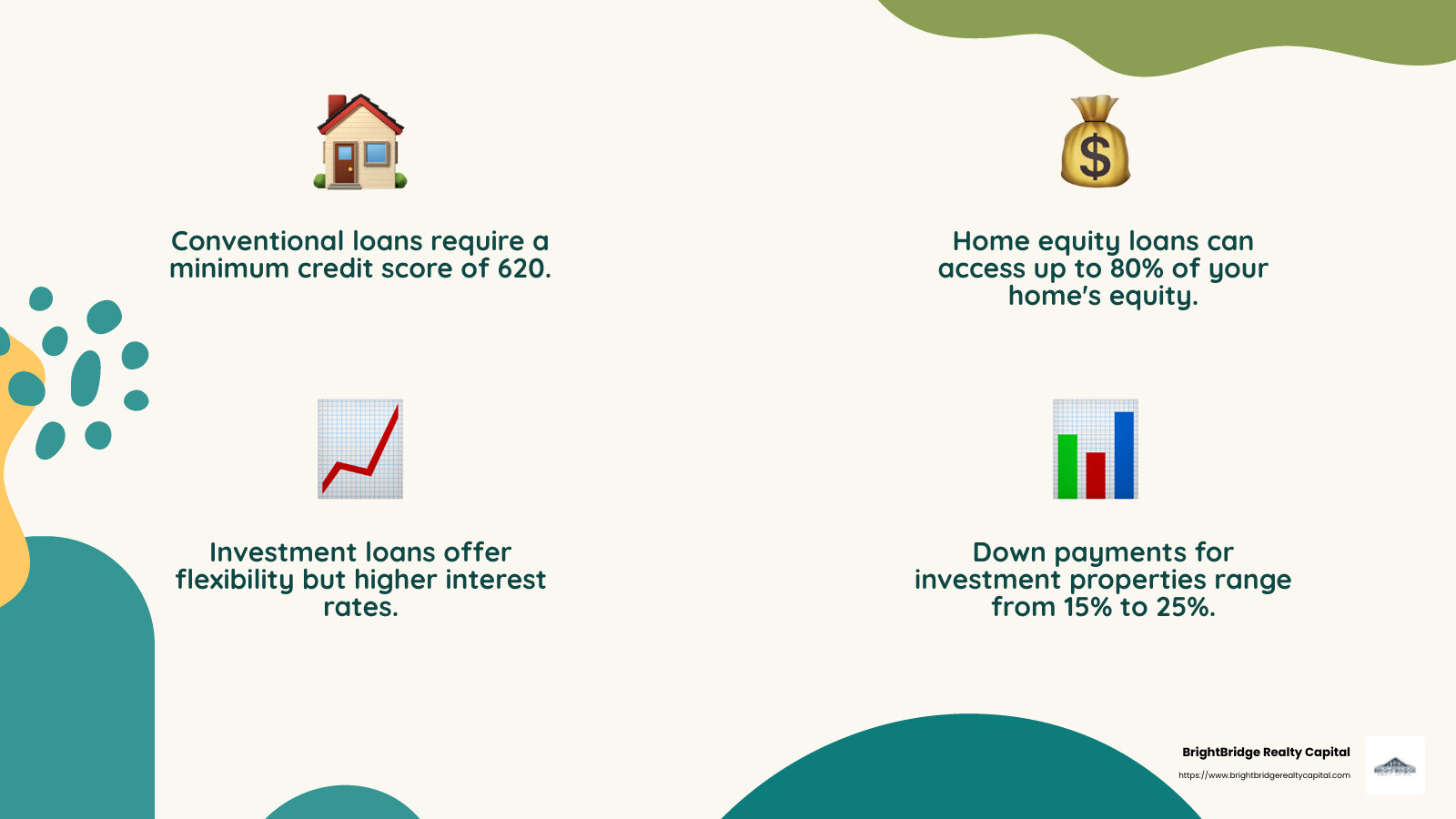Investment Properties Unveiled: What They Are and How to Buy

What is an investment property? An investment property is real estate purchased with the expectation of generating profit. This can come from rental income, resale at a higher value, or both. It's a strategy for wealth growth that suits individuals, groups, or corporations looking to capitalize on their real estate investments.
- Investment Property:
- Profit Generation: Through rentals, resales, or both.
- Ownership: By individuals, groups, or corporations.
- Investment Type: Can be long-term (holding for years) or short-term (flipping).
Real estate investment has carved a niche in the portfolios of many savvy investors. It's not just about buying a house; it's about creating an income stream or a future financial boon. Whether you're eyeing a quaint cottage or a sprawling apartment complex, understanding the dynamics of investment properties can be your gateway to profitable ventures.
Real estate, when approached strategically, can yield substantial returns. And as the market evolves, savvy investors are spotting unique opportunities—whether it's remodeling a fixer-upper or riding the wave of property appreciation. This guide will walk you through the essentials of understanding and acquiring investment properties.

Simple guide to what is an investment property terms:
What is an Investment Property?
Types of Investment Properties
An investment property is a piece of real estate purchased with the goal of making money. This income can come from renting it out, selling it for a profit later on, or both. Unlike primary homes or vacation houses, these properties are all about generating income or appreciating in value over time.
Investment properties come in various forms, each with its own unique benefits and challenges. Let's explore the main types:
Residential Investment Properties
Residential properties are perhaps the most common type of investment property. These include:
- Single-family homes: Perfect for renting out to families or individuals.
- Apartments and condos: Often found in urban areas where demand for rental housing is high.
- Townhomes: Offer a blend of community living with the privacy of a standalone home.
Investors often choose residential properties for their stability and relatively straightforward management. Renting out these properties can provide a steady stream of income.
Commercial Investment Properties
Commercial properties are designed for business use and can include:
- Office buildings: Rented out to companies and professionals.
- Retail spaces: Such as shops and restaurants.
- Warehouses: Used for storage and distribution.
Commercial properties often require higher maintenance but can offer higher rental income. Leases tend to be longer, providing more income stability.
Mixed-Use Investment Properties
Mixed-use properties combine residential and commercial spaces. Imagine a building where the ground floor hosts a café, while the upper floors are residential apartments. These properties can offer diversified income streams and often thrive in busy urban areas.
Understanding these types of investment properties can help you decide which is right for your investment goals. Whether you’re interested in the steady income from residential rentals or the higher stakes of commercial spaces, each type offers a unique path to potential profit.

How to Buy Your First Investment Property
Financing Investment Properties
Buying your first investment property is an exciting venture, but it requires careful planning, especially when it comes to financing. Let's break down the key components: financing options, down payment, credit requirements, mortgage loans, home equity loans, and investment loans.
Financing Options
There are several ways to finance an investment property. Here are the most common methods:
Conventional Loans: These are traditional loans from banks or mortgage lenders. They typically require a higher down payment and credit score compared to loans for a primary residence. A minimum credit score of 620 is often required, and down payments can range from 15% to 25%.
Home Equity Loans: If you have significant equity in your primary home, you can use it to finance an investment property. This involves taking a second mortgage on your current home. You can access up to 80% of your home’s equity, depending on the lender's terms.
Investment Loans: These are specifically designed for purchasing investment properties. They might have higher interest rates but can offer flexibility in terms of down payment and credit requirements.
Finding Investors: Another strategy is to partner with friends, family, or colleagues who are interested in real estate investment. This can help you pool resources and share risks.
Down Payment
Investment properties typically require a larger down payment than primary residences. Expect to put down at least 15% to 25% of the property's purchase price. This is because lenders view investment properties as higher risk, given the potential for rental income fluctuations.
Credit Requirements
Having a strong credit score is crucial when financing an investment property. A score of at least 620 is often needed for conventional loans, but a higher score can help secure better interest rates. For those aiming for a 15% down payment, a credit score of 680 or higher may be necessary.
Mortgage Loans
Conventional Mortgage Loans: These are suitable for single-family investment properties. They require a solid credit score and a significant down payment.
Multifamily Loans: If you're looking at properties with multiple units, these loans are custom for such investments and may have different requirements.
Home Equity Loans
Home equity loans allow you to leverage the value of your current home to finance a new property. They can be a cost-effective way to access funds, but they do come with the risk of foreclosure if you fail to make payments.
Investment Loans
Investment loans can be an attractive option for those looking to expand their real estate portfolio. They offer flexibility but often come with higher interest rates and stricter terms.

Navigating investment property financing can be complex, but understanding your options is the first step towards making a smart investment. Consider speaking with a Home Lending Advisor to explore what best suits your financial situation and investment goals.
Next, we'll explore the tax implications of owning an investment property and how they can impact your overall returns.
Tax Implications of Investment Properties
Owning an investment property comes with its own set of tax implications. Understanding these can help you maximize your returns and avoid surprises come tax season. Let's explore the key areas: capital gains, rental income, and tax deductions.
Capital Gains
When you sell an investment property for more than you paid, the profit is called a capital gain. The IRS taxes this gain, and the rate depends on how long you've held the property. If you owned it for more than a year, you might qualify for long-term capital gains tax rates, which are generally lower. For 2021 and 2022, these rates are 0%, 15%, or 20%, depending on your income level.
For example, if you bought a property for $100,000 and sold it for $200,000 after making $20,000 in improvements, your capital gain would be $80,000. This gain must be reported to the IRS and will be taxed accordingly.
Rental Income
If you rent out your investment property, the rent payments are considered taxable income. However, the IRS allows you to subtract certain expenses from this income, effectively lowering your taxable amount. These expenses can include:
- Property management fees
- Maintenance and repairs
- Property taxes
- Mortgage interest
For instance, if you earn $100,000 in rent but spend $20,000 on repairs and upkeep, you would only report $80,000 as taxable income.
Tax Deductions
Investment properties offer various tax deductions that can significantly reduce your taxable income. Here are some common deductions:
- Depreciation: You can deduct a portion of the property's value each year, accounting for wear and tear.
- Interest: Mortgage interest on loans for investment properties is deductible.
- Repairs: Costs for ordinary repairs and maintenance are deductible in the year they are incurred.
These deductions can make a big difference in your overall tax liability, so it's crucial to keep detailed records and consult with a tax professional to ensure you're maximizing your benefits.
Understanding these tax implications can help you make informed decisions about your investment property and improve your financial returns. Next, we'll weigh the pros and cons of owning an investment property to help you decide if it's the right move for you.
Pros and Cons of Investment Properties
Investing in real estate can be a rewarding venture, but like any investment, it comes with its ups and downs. Let's explore the pros and cons of investment properties, focusing on passive income, appreciation, and management challenges.
Pros
Passive Income
One of the biggest attractions of owning an investment property is the potential for passive income. When you rent out a property, you can earn money each month without having to do much work. This steady stream of income can help cover mortgage payments, property taxes, and other expenses.
"Investment properties provide solid returns, either through monthly rent or long-term appreciation," says an expert from our research. This makes them a popular choice for those looking to diversify their income sources.
Appreciation
Over time, real estate tends to increase in value, a concept known as appreciation. This means that, in addition to earning rental income, your property could also become more valuable. If you decide to sell later, you could make a significant profit.
- Long-term appreciation: Historically, real estate has shown a reliable upward trend in value. This makes it a dependable way to grow your wealth over time.
- Market trends: Staying informed about real estate trends can help you choose properties with the best potential for appreciation.
Cons
Management Challenges
While rental income can be a great benefit, managing a property isn't always easy. Here are some challenges you might face:
- Time and effort: Managing tenants and maintaining the property can take time and effort. Even if you hire a property manager, this will cut into your profits.
- Unpredictable income: Rental income isn't always guaranteed. Vacancies and tenant issues can lead to periods without income.
Additional Costs
Owning an investment property involves more than just paying the mortgage. There are other costs to consider:
- Repairs and maintenance: Properties need regular upkeep, which can add up over time.
- Illiquidity: Real estate is not a liquid asset. If you need to access your cash quickly, selling a property can take time.
Understanding these pros and cons can help you decide if an investment property aligns with your financial goals and lifestyle. Next, we'll address some frequently asked questions about investment properties to further assist you in making an informed decision.
Frequently Asked Questions about Investment Properties
What is the difference between an investment property and a second home?
An investment property is primarily purchased to generate income, either through rental income or resale profit. It's not intended for personal use. On the other hand, a second home is a property you buy for personal enjoyment, like a vacation home, and not primarily for earning income.
The IRS treats these differently for tax purposes. Investment properties can qualify for tax deductions on expenses like maintenance and mortgage interest, while second homes generally do not. However, if you rent out a second home for more than 14 days a year, the IRS may consider it an investment property, affecting your tax obligations.
How can I finance an investment property with no money down?
Financing an investment property with no money down can be challenging, but it's not impossible. Here are a few strategies:
- Home Equity Loans: Use the equity from your primary residence to fund the purchase. You may access up to 80% of your home's value.
- Real Estate Partnerships: Partner with friends, family, or colleagues who are interested in real estate investing. This can help you pool resources and share the financial burden.
- Seller Financing: Negotiate with the seller to finance part of the purchase price. This can reduce the need for a large down payment.
While these options can provide a way to finance an investment property, they come with risks. Always do thorough research and consult financial advisors before proceeding.
What are the tax benefits of owning an investment property?
Owning an investment property offers several tax benefits:
- Mortgage Interest Deduction: You can deduct the interest paid on your mortgage as a business expense, which lowers your taxable income.
- Depreciation: This allows you to deduct a portion of the property's cost over time, reducing your taxable income.
- Expense Deductions: Costs associated with maintaining and managing the property, like repairs, property management fees, and insurance, can be deducted.
- Capital Gains Tax: If you sell the property at a profit, you may be subject to capital gains tax. However, strategies like a 1031 exchange can help defer these taxes by reinvesting in another property.
These tax benefits can improve the profitability of your investment property. However, tax laws can be complex, so consulting a tax professional is advisable to maximize these benefits.
These FAQs aim to clear up some common questions about investment properties. Understanding these aspects can help you make informed decisions and maximize the benefits of your investment.
Conclusion
Investing in real estate can be a rewarding journey, and at BrightBridge Realty Capital, we aim to make this journey as smooth as possible. We specialize in real estate financing that meets your unique needs, whether you're flipping properties, building a rental portfolio, or starting on your first investment venture.
Quick funding is our forte. We understand that in investment properties, time is of the essence. That's why we offer fast closings, often within a week, so you can seize opportunities as they arise without delay.
Our direct lending approach eliminates intermediaries, ensuring you benefit from competitive rates and a seamless process. We are committed to being your trusted partner in achieving your real estate investment goals.
If you're ready to explore your options and take the next step in your investment journey, visit BrightBridge Realty Capital to learn more about how we can support you with our customized financing solutions.
With the right support, investing in real estate doesn't have to be daunting. Let us help you open up the potential of your investment properties today.


